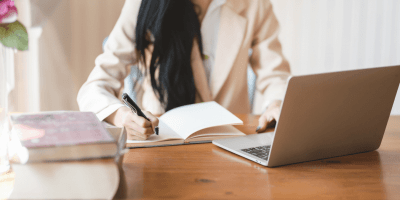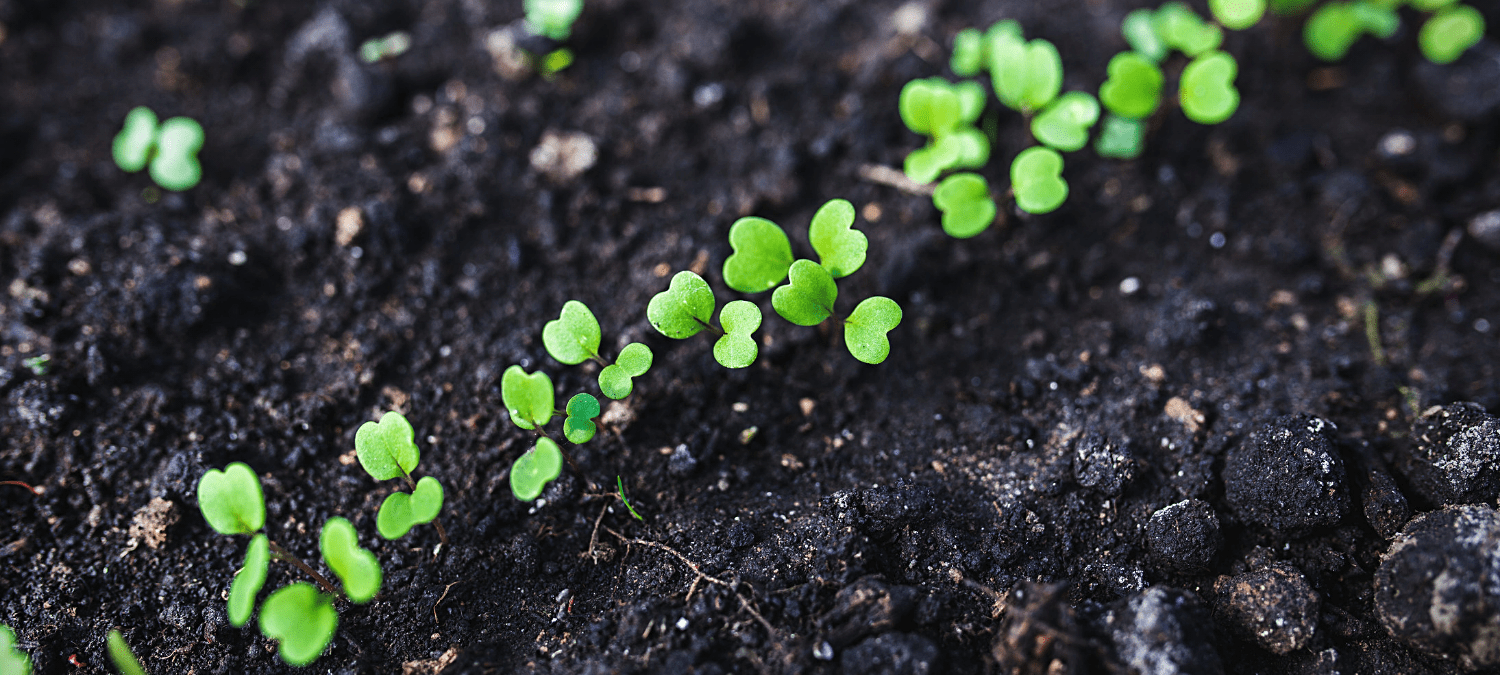MANAGING OUR COLLECTIVE GRIEF AS MENTAL HEALTH HEALERS
SHOWING UP FOR OURSELVES IN ORDER TO BE PRESENT FOR OUR CLIENTS DURING PANDEMIC.
As mental health care providers, we stand now, more than ever in our lifetimes, on the front lines of care for the humans we serve. We may feel as though we are situated perilously with our clients on one side and a world churning with fear and uncertainty on the other without nearly enough hands to tend to our loved ones’ needs, not to mention our own.
CALL IT BY ITS NAME: ACKNOWLEDGING GRIEF
With fewer options than usual for my free time, I have been doing a lot of reading. Recently, I came across a piece by Scott Berniato that really resonated with me. It’s pretty popular, so maybe you’ve seen it. The title of Berniato’s article is perfect: That Discomfort You’re Feeling is Grief.
I think the reason it provided so much comfort is that it helped me name something many of us have been carrying around since the escalation of COVID-19. Grief.
Grief?
Grief! Yes! That’s what this is!
Maybe you haven’t thought about it this way and it’s certainly not for me or anyone else to define your experience. But what we are going through as individuals and as a community of mental health care professionals requires a name. Naming this experience as grief gives us permission and a platform to acknowledge how we feel, hold compassionate space for our fear, and to observe the fact that we may hold a lot of internal conflict.
WAIT WITHOUT HOPE
Before I continue, I want to share this poem by T.S. Eliot called Wait Without Hope.
I said to my soul, be still and wait without hope
For hope would be hope for the wrong thing; wait without
love,
For love would be love of the wrong thing; there is yet faith
But the faith and the love are all in the waiting.
Wait without thought, for you are not ready for thought:
So the darkness shall be the light, and the stillness the
dancing.
Whisper of running streams, and winter lightning.
The wild thyme unseen and the wild strawberry,
The laughter in the garden, echoed ecstasy
Not lost, but requiring, pointing to the agony
Of death and birth.
I really connect with aspects of this writing. Specifically, the parts that ask the reader to not force an emotion but to wait and be still instead. Acknowledging the “waiting” and the “stillness” is difficult because then I also must acknowledge my uncertainty, fear, and sadness. How fitting for our current, and in many ways shared, situation.
WHY GRIEF IS SO DIFFICULT TO ACKNOWLEDGE
While acknowledging grief is important, it is not easy.
Grief is the disorienting collection of emotions and other inner experiences caused by the end of or change in a familiar or comfortable pattern of behavior. It is the pain that accompanies a meaningful loss. Therefore, we cannot acknowledge grief fully unless we also acknowledge that something is out of our hands, out of our control, lost.
Grief is the bridge that exists between the experience of loss and the action of letting go.
For our community, and indeed for many of our clients, the Coronavirus pandemic has created a situation in which all of us are experiencing many losses simultaneously with reason to be concerned about future loss as well.
Acknowledging and cultivating acceptance for all this loss will give us the ability to name the pain or discomfort we are feeling as grief. It also means waiting without hope. Accepting loss means recognizing that one can never step into the same river twice and accepting that life is by no means guaranteed to “return to normal.”
As heartbreaking as loss can be, it is not as painful as getting swept down that metaphorical river in an attempt to be near the waters that are most familiar to us until we go under. Resisting the reality that life changes and is never as plan-able as we’d like is futile, as I’m sure we tell clients all the time in one way or another. The saying “This too shall pass!” is just as true for pleasant and normal states of being as it is for unpleasant ones and always has been. It’s one of the only consistent “normals” we get as human beings.
When we stop making war with loss by trying to fix or solve it, we can begin the healing process of grieving. Our American culture has done its best to condition us to idolize attainment- the opposite of loss – and pushes us to “move forward and get over it.” Because of this and because of our human nature, if we just “sit” in our grief instead of avoiding it, we may feel like we are doing something wrong or foolish in choosing to suffer.
But we know better, right?
SELF-CARE IS VITAL FOR CLIENT CARE
Avoidant behavior in the face of loss is a perfectly understandable band-aid, and we do need some structure, so our pain doesn’t start running the whole show. But choosing to grieve is healing, empowering, and necessary, while avoidant behavior is entirely unsustainable and will not serve us (or our clients) in the long run.
The thing about life is, it’s continuously transforming whether we choose to participate in that transformation or not. We can flow with life or get dragged by it every time we can’t tolerate change.
Choosing to think of this time we’re in as being in a holding pattern until things get back to where we feel they belong is a missed opportunity to participate in a radically transformative time in all of our lives. Accepting loss and choosing to grieve doesn’t mean you surrender. It means you’ve decided to lean into the transformation that’s taking place rather than making war with the inevitability of change and uncertainty. Instead of looking around at all the broken pieces of our lives and wondering how we’re going to put them all back, check out what’s eager to emerge from the ashes!
Listen. The whole world is in pain, and it’s hard to ask for help when we know others are hurting, too. You don’t have to go through this alone, that is true. It is also true that this may be the greatest test our self-care skills have ever faced and we’ll need them to be well-tuned if we’re to keep going. The more self-reliant our situation forces us to be, the more important it will be to show up unapologetically as our own advocate and to create new bonds of support in any way we can.
To do that, we need to show up for ourselves in the realness of this transformative fire. We need to meet ourselves where we are, and for many of us that’s on the bridge of grief on the way to letting go.
Feel the fullness of this time. The strangeness. The comedy, even. What part of yourself will you get to meet for the very first time? What strengths of yours may emerge? Think about how much empathy and compassion you can create with the powerful ingredients of fear, pain, and loss! The moment is ripe with opportunity! But only if we stop trying to reclaim what is already gone.
HOW WE HOLD SPACE FOR ONE ANOTHER AT ALSANA
There is something about this time of experiencing a global pandemic that creates a sensation of being alone and scared– while also belonging to a need and calling that is much larger than myself. It is a strange sensation that both heightens and dulls my senses simultaneously. It is much like the sensation of feeling called into public responsibility of health and containment while also being connected to the idea of being a soul worker in the field of treating eating disorders. This is strange to acknowledge and hold both.
With these complexities in mind, I initiated what I am now calling “Gathering Moments” for my Alsana family. Each week, I email the entire staff with small snippets, quotes, articles, and prompts for teams to consider and discuss in their video calls. They can also be used as the grounding tool of the week. These are ideas that we can “gather” around (despite our social distancing).
This week we also had a “gathering huddle” where our Alsana staff were invited to join a virtual support group. It was an honor to sit together as a collective group of mental health healers. People boldly named their fears and processed their struggles with professional and personal goals shifting or pausing. Other members in the support group showed up for the collective cause while they had their kids in the background of their video. This was a demonstration of their authentic attempt to hold their family structure while balancing the needs of their work. This is brave and honest and something most are experiencing right now.
I feel passionate about extending the relational component of our Alsana Adaptive Care Model™ to include the care for our clinicians. Our “Gathering Moments” are a small weekly extension of this care.
I have been feeling a different type of internal conflict these past couple of weeks. I feel so *energized* by my personal and professional goals! I get truly excited when I think about what Alsana is doing- and then…pretty abruptly, I have felt a staggering *pause* enter my life. I have felt my energies running in different directions. I am a human who loves goals and vision. Growth and collaboration are things that excite me and make me feel a part of something meaningful.
The Coronavirus has halted these energies and has asked me to look at the intricacies of safety, to shift my gratitude towards serving on the micro-level of care, and to pay attention to the details that support health. All of these shifts have meaning, but this was not my plan…this was not my vision…and it feels scary at times. This has been a disruption to my life (as I know it has been to yours as well). I must believe that we have things to learn from this time.
I am looking for what I can learn in the literal stillness of my circumstances. It is a bizarre experience to feel the “buzz” and fear swirling in the world- and feel the parallelization of “staying put” and being present in the moment. The moment is all we have. So, we are called into patience together- to learn, and to grow, and to hold curiosity and responsibility.
Let’s not make one another go through this alone. We are still community if we choose to be.
MOVING PAST GRIEF WHILE MOURNING THE LOSS OF “NORMAL”
Successfully maintaining and improving our ability to serve clients is absolutely vital for hundreds of thousands of people who struggle with an array of mental health issues and who have just lost access to many of their normal coping mechanisms. But we can’t be of service and remain in our integrity if we are not taking care of ourselves. Full stop.
There’s what we know about grief and acceptance as professionals, and then there’s how we feel right now. You are probably hurting. You might not be ready to stop fighting to regain control over some aspects of your life and that’s ok. Grieving is a process. Grieving even one loss can take a long time. Grieving our old normal and accepting the possibility that we may never return is going to require patience and community.
Is it possible to practice self-compassion in our yearning to “get back to normal” while simultaneously doing the hard work of being present in a painful, lonely, uncertain situation?
Yes, I believe so.
Some ideas for us all to consider:
- What does this time of grief mean to me and how has it fit in the context of my life?
- Perception MATTERS. It opens the door for us to see how to proceed towards resilience.
- What am I losing during this time?
- What have I gained?
- How is my body responding during this time (am I sped up and fidgety? Am I lethargic and tired? Am I fearful and disconnected?)
- There is no right way to be right now.
- What do I need during this time?
- What do I need personally?
- What do I need to do my job each day?
Another thing to keep in mind is that loss is not the only thing to come out of the Coronavirus pandemic.
- What lessons have you learned?
- What new things have you learned about yourself or the people you may be sheltering with?
- Are there things we’ve lost not worth returning to? Something we might say “good riddance!” to?
- Have you seen the pandemic bring out the best in some people?
- What new curiosities or emotions might you explore during any newly-found free time?
- Can you think of any vacancies or spaciousness left by loss as opportunities rather than as an empty void?
- What new seeds can you plant in this new, fertile soil?
- Which weeds can you uproot now that you’re not as bound to your old routine?
- Which flowers in the garden of your heart can you appreciate more fully now that some things have settled?
HEALING GRIEF WHILE RETHINKING OUR RELATIONSHIP WITH “NORMAL”
(WE DON’T LIKE VULNERABILITY)
“Vulnerability is the core of fear, but also the birthplace of love and belonging.” Brené Brown
Much of why we may avoid naming grief also has to do with our relationship with vulnerability. Loss and grief make us acutely aware of our vulnerability, but they are not the root cause of it. It’s almost the opposite, actually.
Before the pandemic, we padded our lives with things like our jobs, relationships, massage appointments, you name it, that made us feel secure, and we had pretty solid systems in place for getting our basic needs met. We had routines and plans and things that helped us not to fixate on the fact of our own vulnerability. What are we supposed to do now that our perceived layer of safety has been taken away, our vulnerability exposed?
When we come face to face with extreme vulnerability and grief, losing the trappings of our “old normal,” we may feel like we don’t even recognize ourselves. But we have to stop short of the fallacy of mourning the loss of ourselves because – listen to me very carefully – WE ARE STILL HERE.
No matter what happens, no matter how significant the loss (or success, for that matter), you are not that. You are the observer and sometimes the co-creator of those things, but they are not you. Therefore, nothing that happens to you could ever diminish who you are, what you’re worth, or your right to be here.
Many of us have been conditioned into shameful association with vulnerability, as though it’s a hideous wart that we don’t want anyone to see for fear of being “other.” But vulnerability isn’t the one thing you carry that makes you different and weird– it’s the thing you have in common with every other human being on the planet. Your vulnerability means you’re in great company, bad company, and neutral company. We are all in this together.
How well we navigate these strange times will have a lot to do with our vulnerability tolerance level. With a high vulnerability tolerance level, we will be able to ask for help, set boundaries, call a loved one to hold space as we grieve, and allow ourselves to feel clumsy in this new, uncharted landscape while we try to adapt. With a low vulnerability tolerance level, we have few options but to continue to make war with and resist loss, which is just as futile as resisting the passage of time.
There is only one way to avoid loss and grief, and that is to not care about anything. Ever.
Being vulnerable is a fact of human existence, and it is present in our lives whether we choose to acknowledge it or not. We are all aware of our vulnerability right now, but our vulnerability is not a new feature. When we are brave enough to hold that vulnerability up without shame, we give sincere permission for others to join us. And sticking together is how we’re going to heal, survive, and eventually thrive.
WE ARE STILL PROUD TO BE PART OF YOUR COMMUNITY
I hope you know that there is a team of caring professionals at Alsana that is here for you, if and when you need us. While the pandemic has stirred up our fears, it has also illuminated some of what’s best about our communities both locally and throughout the world. I’d like to invite you a special Virtual Town Hall Event for mental health heroes just like you. This Thursday, April 9, please join me for a session we’re calling Collective Grief: Caring for Ourselves and Showing Up for Our Clients. Space is limited, so register today!
STAY CONNECTED
- FREE Online Support Group
- We are still taking admissions
- Follow us on Instagram
- Follow us on LinkedIn

We Are Here to Help
Alsana would like to be your eating recovery community.

Virtual Treatment Options
Recovery is NOT Canceled.
Learn more today.
Our Recommended Articles
Start the road to recovery with Alsana.








